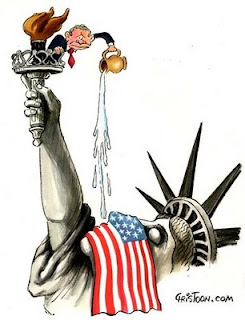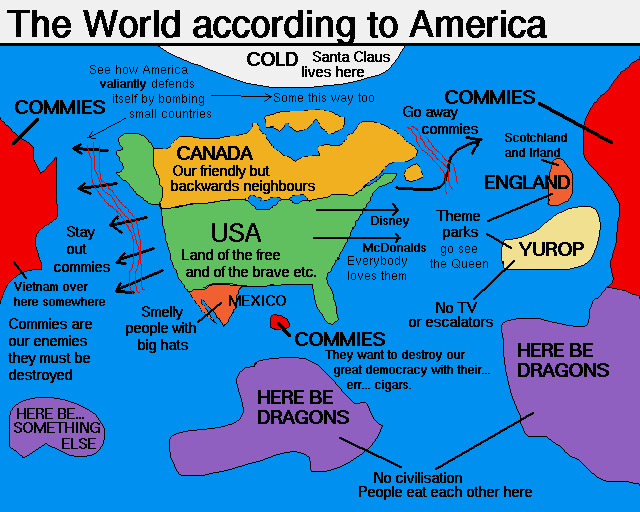 I caught the tail end of a rather interesting piece on NPR while driving yesterday. They were talking about the way that Americans give up civil liberties during wartime (I know, how topical).
I caught the tail end of a rather interesting piece on NPR while driving yesterday. They were talking about the way that Americans give up civil liberties during wartime (I know, how topical).I listened in and the guy made possibly the best point I have ever heard. If you violate rights to avoid an attack, the majority of Americans will be angry that you attacked citizens' rights. If you don't do enough research into possible terrorists, the people will be angry that you did not avoid the attack; it's like catch 22.
There is a problem with this argument. Bush was told that "Osama Bin Laden is determined to attack US soil" about a month before 9/11. His head of security (appointed by Clinton) also added that Bin Laden may attack the world trade center with a plane, similar to the plans that clinton had thwarted a few years earlier.
Bush ignored the threats. Then, once we were attacked, he realized that the people wouldn't allow a second slip up like this. He overcompensated for his mistakes at the cost of innocent Americans.
It seems that the argument on NPR was well thought out, just flawed in that we may have been able to avoid the attacks had we had more foresight. I know that hindsight is 20/20, I just wish we could use examples of terrorist avoidance without civil liberties as a plan for the future.

You make a very good point Sam, there really is not much of a middle ground for this issue, it is almost impossible to have security and no violations of civil liberties. In my essay, I discussed how the government is slowly making progress and moving forward in this area. The point, I guess is that while the future may seem gloomy for civil liberties, it is not entirely so. As Geoffrey Stone trumpets, "I think the Supreme Court has learned the lesson of history... they do not want it to be their own legacy that they made the same type of mistakes that their predecessors did."
ReplyDelete